Common Face Washing Mistakes You Must Avoid
By: Priyanka Maheshwari Wed, 05 Oct 2022 3:18:03
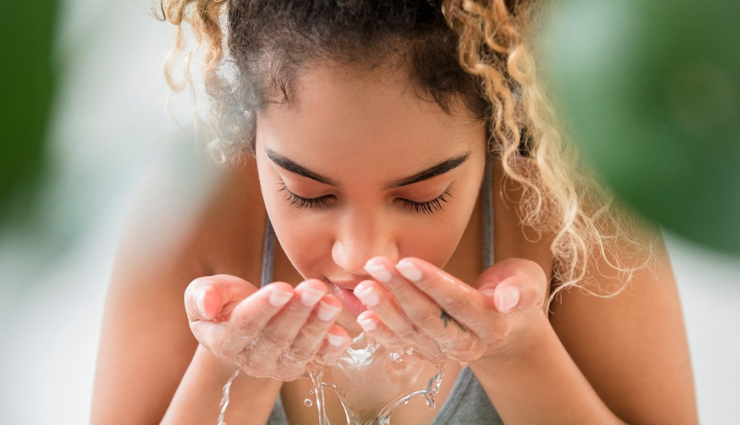
Washing or cleansing your face seems a very basic chore, but we all consider skipping this step from time to time or maybe we just forget. If that happens, and you don’t wash your face, you’ll end up with premature skin aging.
Your skin is exposed to many different types of stressors throughout the day. As your largest organ, it is important to make sure you are taking care of it, and most especially your facial skin.
Since your face is not covered by clothing, it is naturally open to receiving the most abuse from the outside world from a variety of sources such as UV exposure, arid or humid climates, harsh air conditioning or heating, cigarette smoke, and other pollutants.
To help protect the skin from environmental damage, it creates a moisture barrier of a waxy or oily substance called sebum. While sebum is beneficial to your skin, if it stays on the face too long without being cleaned off, it can mix with makeup, dirt, debris, sweat, and other skin waste. This may cause a blockage of skin follicles leading to acne, blotchy skin, irritation, and overall unhealthy looking skin.
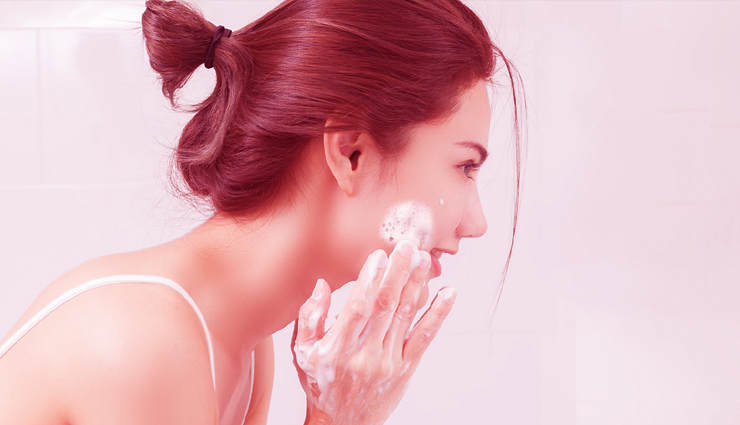
# Using the Wrong Cleanser
Choosing the correct wash cleanser for your skin type is a make or break moment in your skincare routine, according to many top estheticians and dermatologists, and the most common mistake committed by many. Using the wrong one can hinder the efficacy of any products you apply afterward, not to mention causing irritation. As a general rule of thumb, those with normal to dry complexions should opt for a more hydrating, creamy cleansing lotion, while oily or combination types can use foaming or gel cleansers. The safest way to avoid over-stripping your skin is to pick a sulfate-free formula and look at the size of the suds, particularly when using gels or foams. If the cleanser lathers the same way as your shampoo, then it’s way too strong. You want it to be slightly frothy and not super bubbly.

# Applying Cleanser Incorrectly
It’s not just a matter of slapping some water on your face and adding a dollop of wash. If you’re using a cleansing lotion, make sure to apply it on completely dry skin and rub it in for a few seconds, as you would with a moisturizer. This gives the oils in the cleanser a chance to break down the oils in your makeup and on your skin. After this, wet your fingertips slightly to help emulsify the product. On the flip side, stronger gels or foams should go on wet skin so that they don’t dry out your complexion. If you’re using a wash made to combat breakouts, just let it sit on the skin for one minute before rinsing off with lukewarm water. This gives the active ingredients time to do their job and kill any acne-causing bacteria.
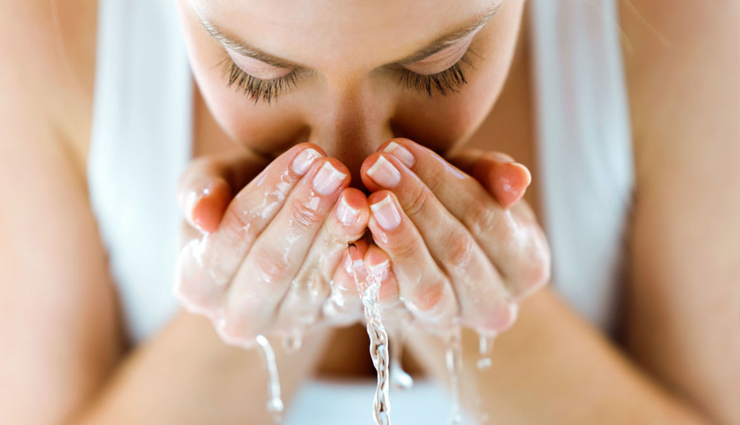
# Forgetting to Wash Your Face in the Morning
You may be diligent about washing your face before you sleep at night, but what about in the morning when you wake up? Do you just amble over to the coffee machine each morning and forget to wash your face because you’re thinking, “Well, I’m taking a shower later anyway.” Even if your skin doesn’t feel dirty, don’t forgo a morning stop at the sink. You’re getting rid of the natural oils that have built-up overnight, as well as any residue from products you applied before going to bed. This gives you a clean slate so that whatever you use in the morning, and most importantly the sunscreen, can penetrate and work effectively. Wash your face when you get up in the morning even if you’re going to shower later in the morning unless you’re the type to shower immediately after getting up.
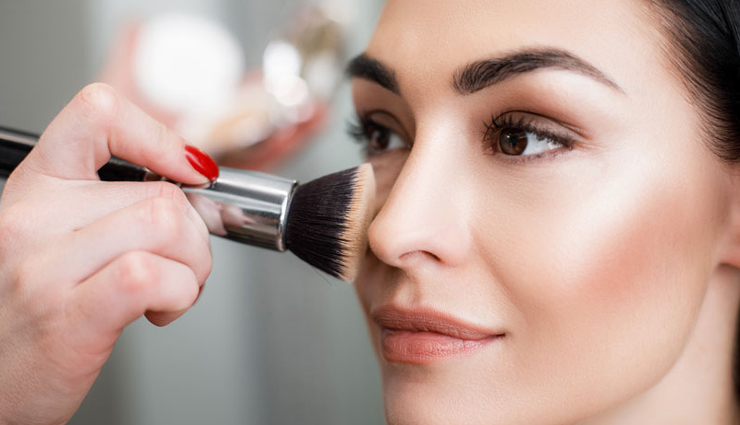
# Not Wiping Off the Makeup
The good news on this aspect is that most cleansers on the market effectively remove makeup, so there’s no need to make makeup removal a separate step in your routine. However, the bad news is that there is a little elbow grease required. After you rinse off your cleanser – but before you dry off your face – it’s important to use either a washcloth or facial sponge to thoroughly wipe off the makeup from your skin. Makeup doesn’t just dissolve when you wash your face since it has to be physically wiped away.

# Using a Washcloth that Isn’t Too Soft
It’s okay to use a washcloth, but be careful as to the type of washcloth you’re using. Do opt for a baby washcloth, which will be softer and less likely to irritate your skin. But do not ever scrub your face with it. Even a little irritation from washcloths can lead to post-inflammatory pigmentation in the long run. This translates to dark spots, especially for those with darker complexions. And as always, always use a fresh washcloth every time you wash. A damp washcloth is a breeding ground for bacteria. And since we’ve just mentioned bacteria, it’s just as bad to wash your face if your hands are dirty. This one is quite gross when you think about it, so please, before washing and cleansing your face, you should wash your hands to make sure they are clean before you put them on your face. From door handles to your cell phone, your hands could have bacteria on them from the various surfaces you’ve touched throughout the day, which is why you should always give them a good rinse before washing your face.
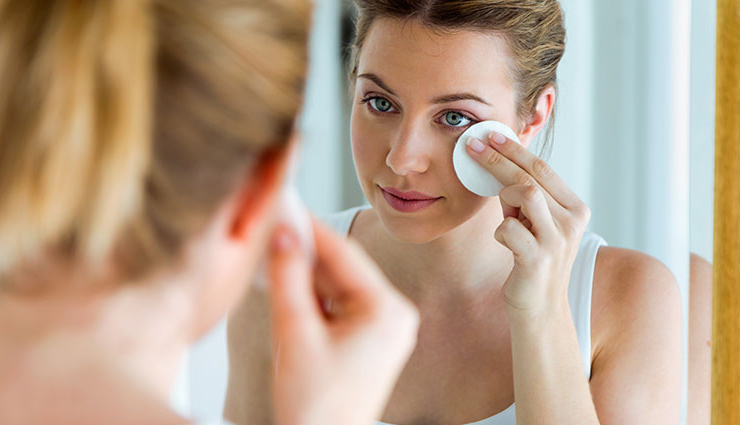
# Rubbing Your Face When Drying
Once you’re done washing and cleansing, resist the urge to rub your face dry. This can cause inflammation and this may lead to unsightly irritation and redness. Instead, gently pat dry, pressing the washcloth or towel against your skin until most of the moisture is absorbed.
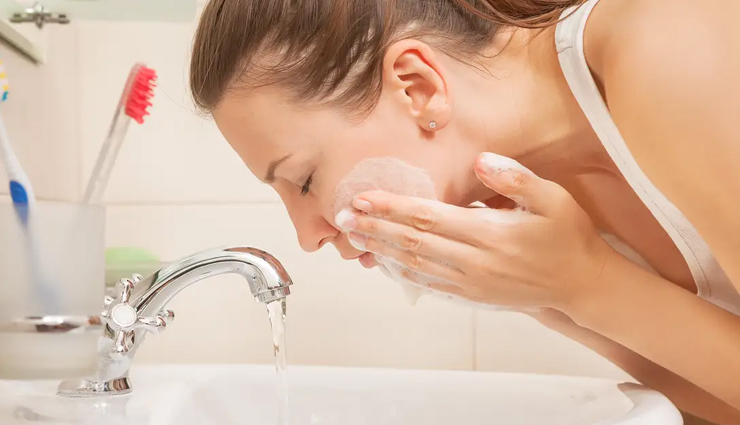
# Skipping a Step in Washing
Does your skin feel tight or stripped after you wash your face? You’ve likely missed or forgotten a critical post-cleansing step. Once you’re clean and dry, make sure to apply a serum or moisturizer within 60 seconds from rinsing your face. The water you’ve just washed with hydrates the skin, but it instantly starts to evaporate. By applying a hydrating product immediately after, you not only get the benefits of the product, you’re also locking in the moisture you got from washing.
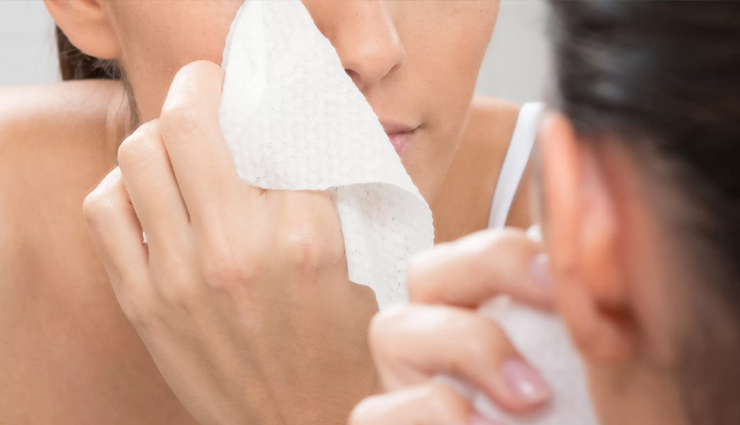
# Relying Too Much on Wipes
Cleansing wipes are very convenient if you’re on a road trip or when at work, but sadly, they’re not a substitute for legitimately washing your face. They smear dirt, makeup, and oil across the skin, rather than actually removing it. It would be like applying a cleanser and then not rinsing it off. Make facial wipes the absolute exception, not the rule. If you just can’t give them up, they’re best suited to help remove stubborn eye and other makeup, but always follow up by washing your face.
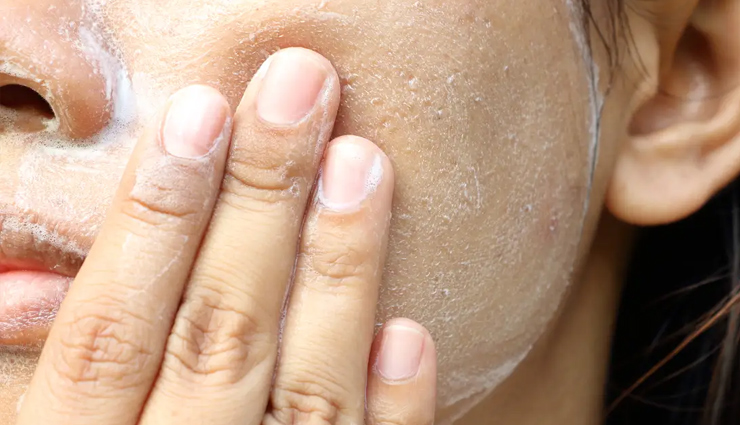
# Exfoliating Too Much
Daily exfoliating is not only unnecessary, it can do more harm than good. It takes two weeks for cells to make their way from the base of the skin to the surface, and another week or two to accumulate and make skin start to look dull. A weekly exfoliating session is more than enough to keep your skin glowing. Since most face scrubs and chemical exfoliant are based on a cleansing agent, there’s no need to make this a separate step. Simply just swap out your regular cleanser for an exfoliating option.





